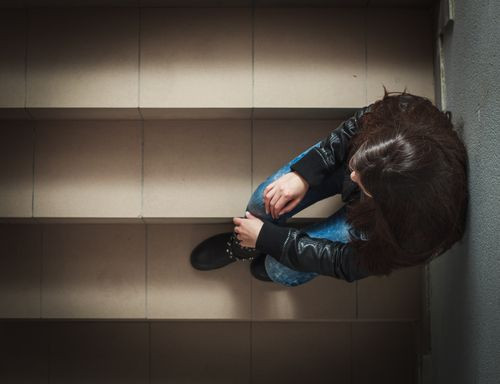Woodson High School Suicides: Some Question Whether Suicide Is Contagious After Cluster Of Teen Deaths In Virginia

Wilbert Tucker Woodson High School of Fairfax County, Va., ranked #74 on Newsweek's Top 1,000 High Schools of 2008. Today Woodson serves a population of 2,200 students and is an important part of the social fabric within the Washington metropolitan area. Something, though, has gone seriously haywire there as evidenced by the recent actions of sophomore Jack Chen reported in The Washington Post. This captain of the junior varsity football team who had never tried drugs and maintained a 4.3 grade-point average — this exceptional 15-year-old boy by every measure chose to bloodily end his life one weekday morning by stepping in front of a train filled with commuters hurling toward their city destination.
Although his death is a tragic blow in and of itself, what makes it even more painful is the fact that his is one of six suicides at Woodson — another boy was found dead the following day — during the past three years. Christine Moutier, chief medical officer of the American Foundation for Suicide Prevention, explained that suicide clusters can impact other students, especially when amplified on social media. “The thing we are always concerned about is the phenomenon of suicide contagion,” Moutier told The Post.
As described by the Centers for Disease Control and Prevention (CDC), suicide contagion occurs when exposure to suicide or suicidal behavior influences others to commit or attempt suicide. A study conducted in 2013 by researchers at Harvard School of Public Health explored this issue and found that “exposure to suicide predicts suicide ideation and attempts.” This particular investigation surveyed a total of 8,766 adolescents between the ages of 12 and 13, another 7,802 students between the ages of 14 and 15, and 5,496 students between the ages of 16 and 17. In all groups, exposure to a schoolmate's suicide was linked to increased numbers of students reporting thoughts of suicide, and also increased attempts. Worse, in its report, the CDC found that the effect of contagion may not be confined to suicides occurring in “discrete geographic areas,” but coverage of suicide in newspapers and on TV may also trigger an excess of suicides.
The American Foundation for Suicide Prevention recommends those left grieving in the wake of a suicide find support in order to work through their own feelings. If suicide does at times work as a contagion, those who may be susceptible need to build their immunity against it. And that can be done by reaching out to members of a support group, a therapist, or simply a friend.
The note Jack Chen left expressed love for his family and friends and his dream of becoming a computer science professor as well as a dad. Yet The Post also reported that he wrote, “There is too much stress in my life from school and the environment it creates, expectations for sports, expectations from my friends and expectations from my family.” Jack’s father speculated that his son’s skin medication, which can cause depression, might have played a role. Unfortunately, Jack did not overtly display his feelings. “There was something going on in his mind, but he didn’t give me any chance to do anything,” Jim Chen told The Post.



























